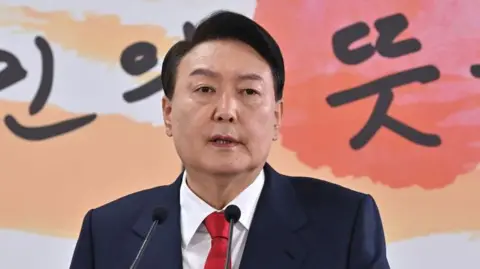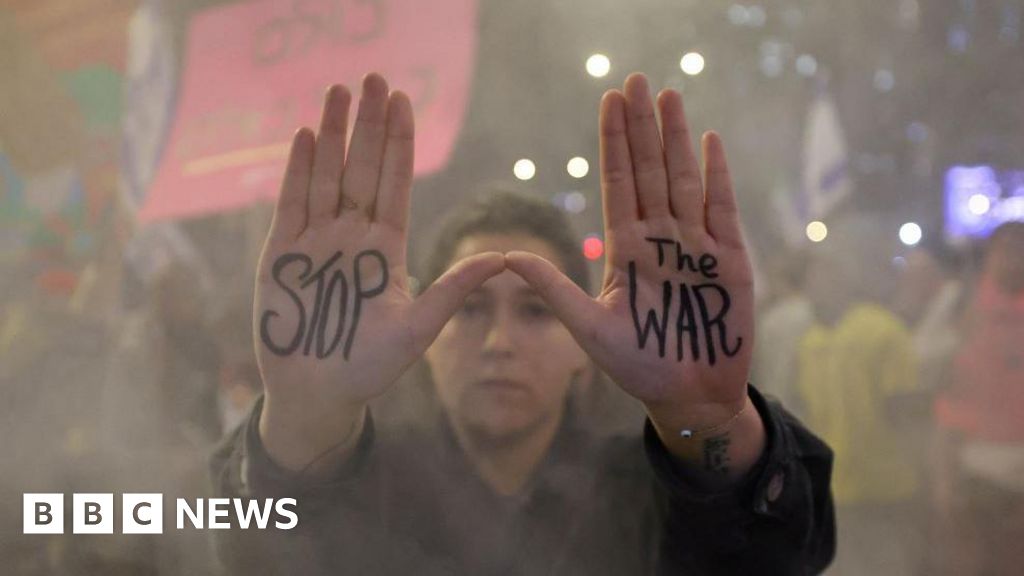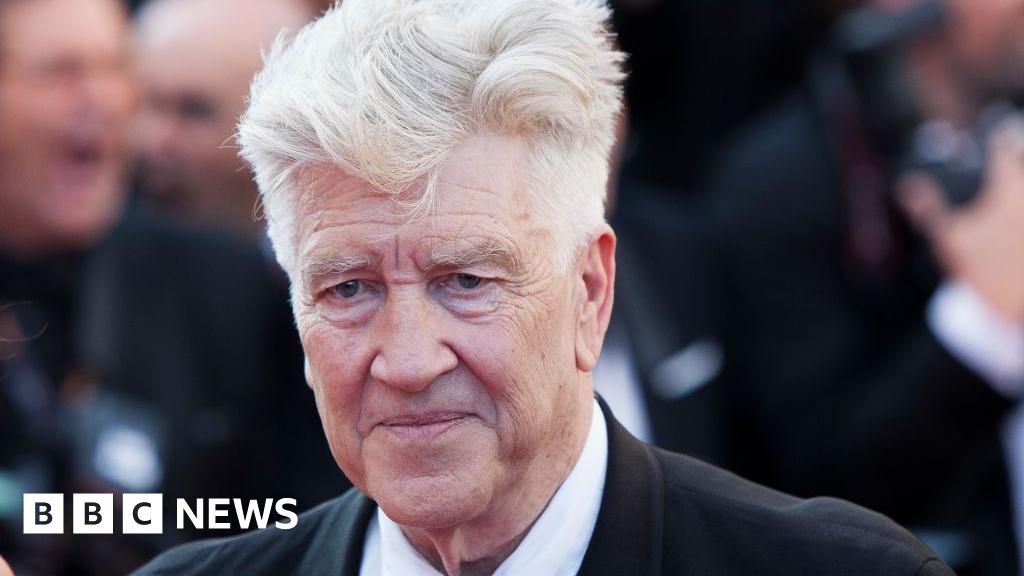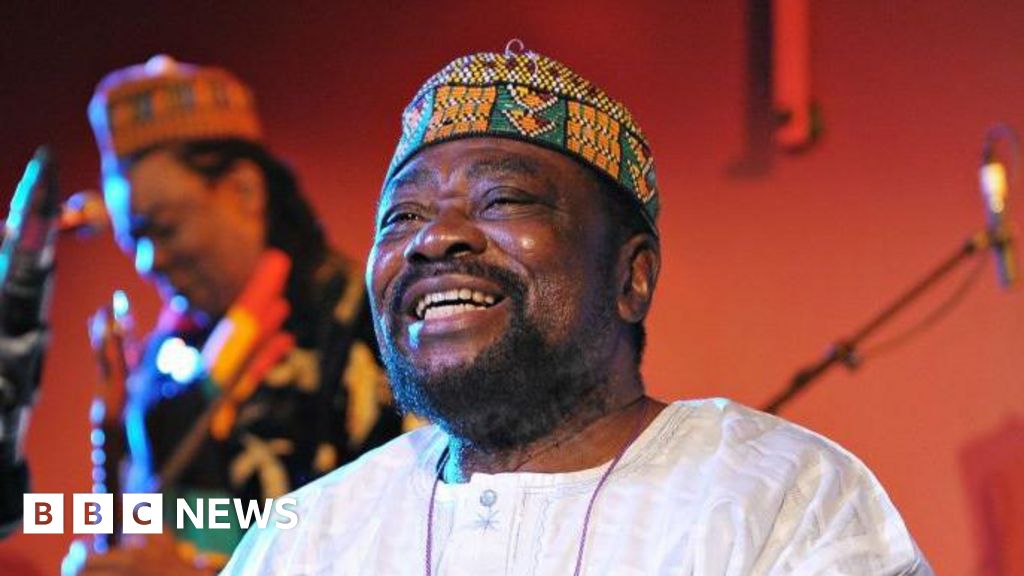ARTICLE AD BOX

 Getty Images
Getty Images
President Yoon declared martial law on Tuesday, saying it was to save the country from dark forces and the threat from North Korea (file image)
South Korea President Yoon Suk Yeol has apologised for declaring martial law earlier this week and has said there will not be another such order.
The embattled leader is facing potential impeachment following Tuesday night's declaration, which was quickly overturned in the National Assembly.
In response to the president's address, the leader of his ruling People Power Party (PPP) told reporters that it had become impossible for Yoon to continue his normal duty.
"His early resignation is inevitable," said Han Dong-hoon.
It had been speculated that Yoon would use the address to the nation - his first since declaring martial law - to resign but he did not do so, instead saying that he would delegate the work of stabilising the situation to his ruling party.
He also did not mention impeachment.
The opposition is pushing for a vote on the motion to impeach Yoon on Saturday. It needs at least eight members of Yoon's party to vote for his impeachment for the motion to pass with a two-thirds majority in the 300-seat parliament.
South Korea was plunged into political turmoil late on Tuesday night when Yoon made the shock martial law declaration.
He cited threats from "anti-state forces" and North Korea. However, it soon became clear that his move had been spurred not by external threats but by his own domestic political troubles.
Some lawmakers jumped over barricades and fences to get past security forces in order to convene in parliament and void Yoon's decree.
Yoon rolled back the declaration six hours later after MPs voted it down but there had been concern he would attempt to make a second decree. Some lawmakers had been staying near the National Assembly to make sure they were there ready to void it.
Before his attempt to place the country under military rule, Yoon had been beset by low popularity ratings, corruption allegations and an opposition-led legislature that reduced him to a lame-duck leader.

 1 month ago
13
1 month ago
13








 English (US) ·
English (US) ·